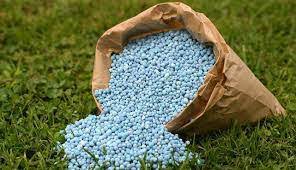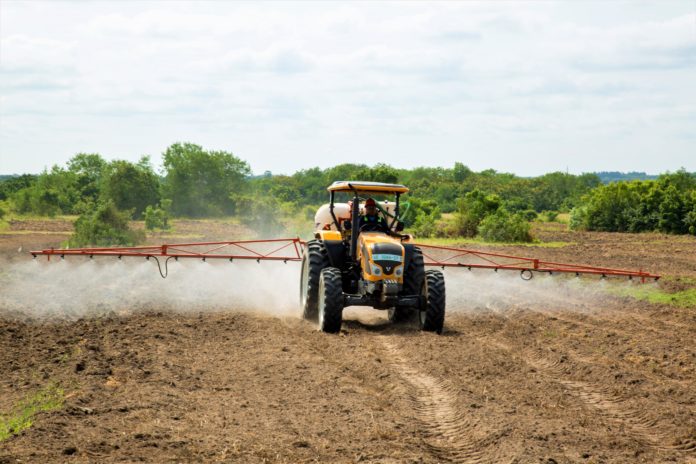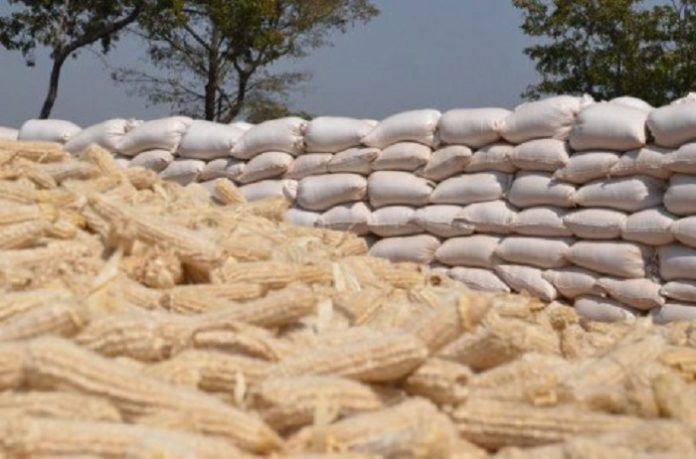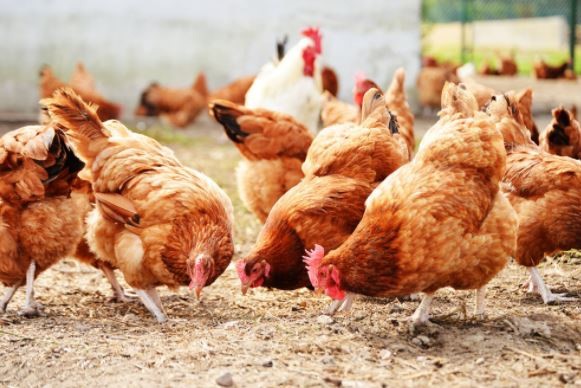The prevalence of phony and illegal agrochemicals on the Ghanaian market is a source of worry to stakeholders in the agricultural sector, with CropLife Ghana warning that between 25 to 35 percent of imports into the country are fake or banned.
Government is considering legislating agric financing as banks continue to neglect the sector.
Agriculture financing is a turmoil in the country as banks are reluctant to offer financial support to the farmers. To increase financial support to the farmers for high production of food crops in Ghana, the Food and Agriculture Ministry (MoFA) is considering a proposal to the Cabinet, regarding the need to introduce an agriculture finance law to pursue banks to invest in the sector.
Plans are underway to complete fertilizer projects in Ghana – Afreximbank.
As part of efforts to boost Ghana’s participation in intra-African trade, the African Export-Import Bank, also called the Afreximbank, has pledged its commitment to supporting the building of some key facilities in Ghana.
Stakeholders partnered to distribute beef in Ghana from Namibia.
Abanga Farms & Food Systems Limited, a Ghanaian agricultural-based company, has taken delivery of the first consignment of top-quality beef from MEATCO, the Namibian meat producing and exporting company, to distribute in Ghana. It is the first of its kind between the SADC and ECOWAS regions.
Eku Juice is to be exported to the US and UK markets after interest in the product rise.
Fruit juice manufacturing company, Ekumfi Fruits and Juices Factory, says it will, in a few months, begin exporting its product, Eku Juice, to markets in the United States and the United Kingdom.
GIZ, ECOM Ghana mitigate the impact of Covid-19 on farmers with voice tech.
The impact of Covid-19 has left dire consequences on the economic livelihoods of many countries around the globe.
But a GIZ advocacy technology introduced at the peak of the pandemic has assisted more than 3,000 farmers with preventive protocols through an interactive voice response message.
The platform established by the Sustainable Management Service (SMS) of Cocoa Merchants, ECOM, cushioned farmers in over 200 remote farming communities in Ghana against the impact of Covid-19.
The spread of the Covid-19 virus was met with skepticism, especially among rural dwellers in Ghana. The impact of the pandemic has left many economies around the world struggling.
To mitigate the impact of the disease on the health and economic livelihoods of smallholder cocoa farmers in Ghana, leading cocoa merchants, ECOM, through GIZ established a Covid-19 advocacy technology.
The voice messaging tool employed an interactive voice response mechanism to facilitate the dissemination of Covid-19 health protocols and safety measures to farmers.
Managing Director of BISA technology, Reindorf Owusu, says “the farmers were receiving Covid-19 preventive messages for 36 weeks. This relevant message was in the local dialect, where the farmers better understood the education on COVID-19. They didn’t need any WhatsApp, they received it as a phone call.”
The project was implemented in 208 communities with over 5,000 beneficiary farmers.
At the end of the one-year project, more than 50% of the target rural farmers have adopted the safety measures.
Programmes Manager for SMS, Francis Ahiamatah, says “using these new methods, adoption was pegged at 50%. In the industry, adoption and behavioural change, you have to target about 50% average. And we were able to achieve more than 60% adoption. This indicates that this is the way to go using technology,” he said.
With less public sensitisation in most remote communities, the farmers say the telecommunication technology came in handy.
“In the advent of Covid-19, most of us didn’t know much about the disease. So we mostly did not heed the safety protocols.
“But when the education came, you’ve been able to apply these preventive measures in our daily lives. It has saved most of us,” one of the beneficiaries, Paul Armah, acknowledged.
The GIZ/SMS project is a public-private partnership anchored under the develoPPP programme of GIZ Ghana and implemented on behalf of the German Federal Ministry for Economic Cooperation and Development (BMZ).
Africa could feed itself with the right infrastructure.
Drought, COVID-19, and the Russian war against Ukraine are fomenting a hunger crisis in Africa. The continent has enough fertile soil and water to meet its own needs, but there are many hurdles preventing this.
With vast arable lands, why is Africa dependent on imported grain?
Despite having vast amounts of arable land, nutritious indigenous crops, and a booming agricultural sector, Africa still imports most of its grain.
Agric Minister receives representatives from Afruibana on issues affecting banana industry.
The Minister for Food and Agriculture, Hon. Dr Owusu Afriyie Akoto received a delegation from Afruibana on June 27 2022.
Afruibana is a Pan-African association of producers and exporters of fruit, particularly bananas in the Ivory Coast, Cameroon and Ghana.
With a total of 80,000 direct and indirect jobs and a production of over 6.7 metric tonnes of bananas in 2021, the association is aimed at promoting the development of trade relations between Africa and the European Union through the export of African fruits to the European Union.
The delegation led by the President of Afruibana, Joseph Owona Kono presented to the Minister the pressing issues facing the association indicating two ( 2) institutional issues: Living wage and Lack of Cooperation.
The President of Afruibana explained that wage levels imposed by Fairtrade and Rainforest Alliance are not in line with wage legislation and regulations in the respective countries and could create distortions and inflated operational costs.
On lack of cooperation, he averred that the new European Cooperation instrument (NDICI) has already gone through the programming stage and has not taken the banana sector into account.
He, therefore, suggested to governments of the respective countries that form the association including Ghana to support accessing other resources like regional funds, food production and the resilience of agricultural commodities programme ( ACP) food systems to increase volumes, accelerate the ecological transition and provide more decent jobs.
Dr Owusu Afriyie Akoto in his remarks suggested to Afruibana to provide the necessary documents to enable him to take action.
The minister advised the pressing issues to the Minister of Employment and Labour Relations, Hon. Ignatius Baffour-Awuah for further deliberations.
Poultry farmers lament over ₵30 compensation to bird flu-infected farmers.
The Poultry Farmers Association of Ghana is appealing to the government to increase the compensation given to farmers whose birds are affected by Bird Flu.
As part of measures to curb the disease from spreading, the Ministry of Food and Agriculture and the Veterinary Services Department is mandated to kill and properly dispose off infected birds, after which farmers will be compensated with ₵30 per bird.
Speaking to Joy Business, the Vice President of the Greater Accra Poultry Farmers Association of Ghana, Kwame Ntim Duodu lamented that it takes farmers an average cost of ₵60 cedis to keep a single bird, hence the ₵30 is woefully inadequate.
“A poultry farmer can spend about ₵60 to keep a bird. This includes feeding, electricity, and chemicals. If the bird is affected by the flu and you say you want to give the farmer ₵30 to kill and bury the bird, the farmer is losing,” he said.
He stated that the money is woefully inadequate and will not help the fight against the flu.
“If we want to encourage farmers to report the outbreak of the flu, then we must compensate farmers adequately,” he stressed.
Meanwhile, Mr. Ntim Duodo has appealed to Ghana Veterinary Services Department to exempt poultry farmers from the cost of disinfecting bird flu-infected farms to encourage farmers to report outbreaks.
According to him, the charges imposed by the veterinary services before infected poultry farms are disinfected, are unbearable since farmers are already losing from the destruction of the birds affected by the flu.
Mr. Ntim Duodu appealed to the government to step in since poultry farmers are losing all their investments.
“If you ask a farmer who has lost most of his birds to the flu to still pay for the cost of the disinfection exercise, it will be a burden”, he said.
He maintained that it will be prudent and encouraging if the government bore all the cost of disinfection to encourage farmers to report cases of the flu.
“The veterinary services should do more than what they are doing currently. A report from a farmer in Sunyani says that the vet services attended his farm that was affected by bird flu and they asked the farmer to buy the disinfectant to disinfect the place”.
According to Mr. Ntim Duodo, the issue of bird flu is a public health situation that must be addressed through state intervention.
He stressed that the farmers are already going through difficult moments by reporting cases, which lead to the destruction of their birds.
“The farmer is already in a difficult situation. If the farmer had the resources to buy the disinfectant and destroy the bird he or she would have done so and just report,” he said, adding that the disinfection and the compensation are major motivations for farmers to report cases of outbreaks.














